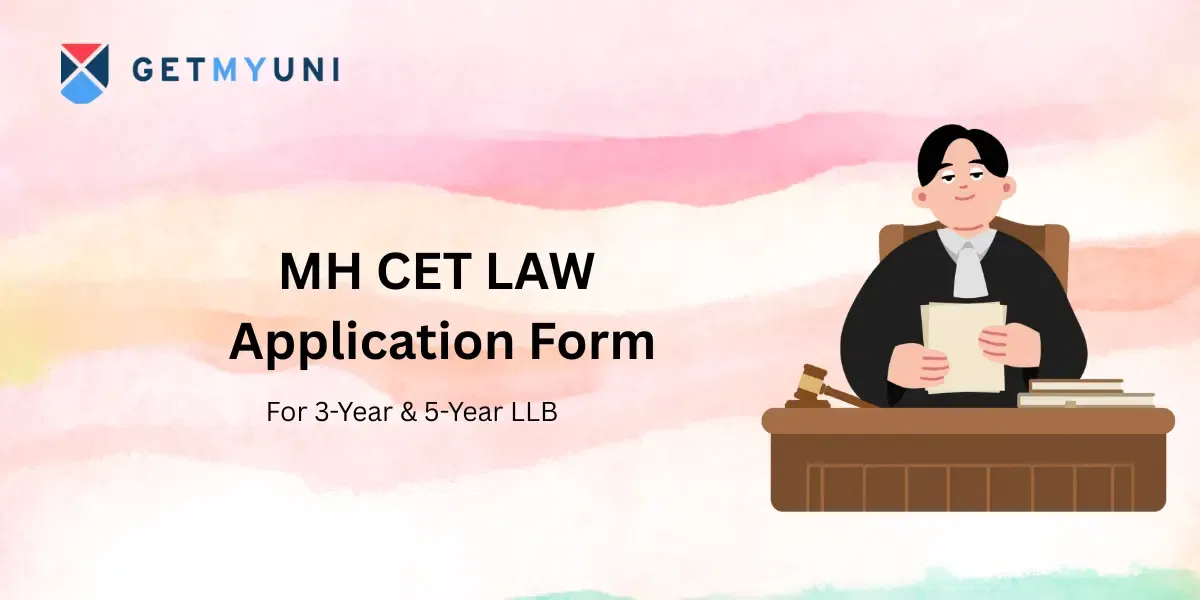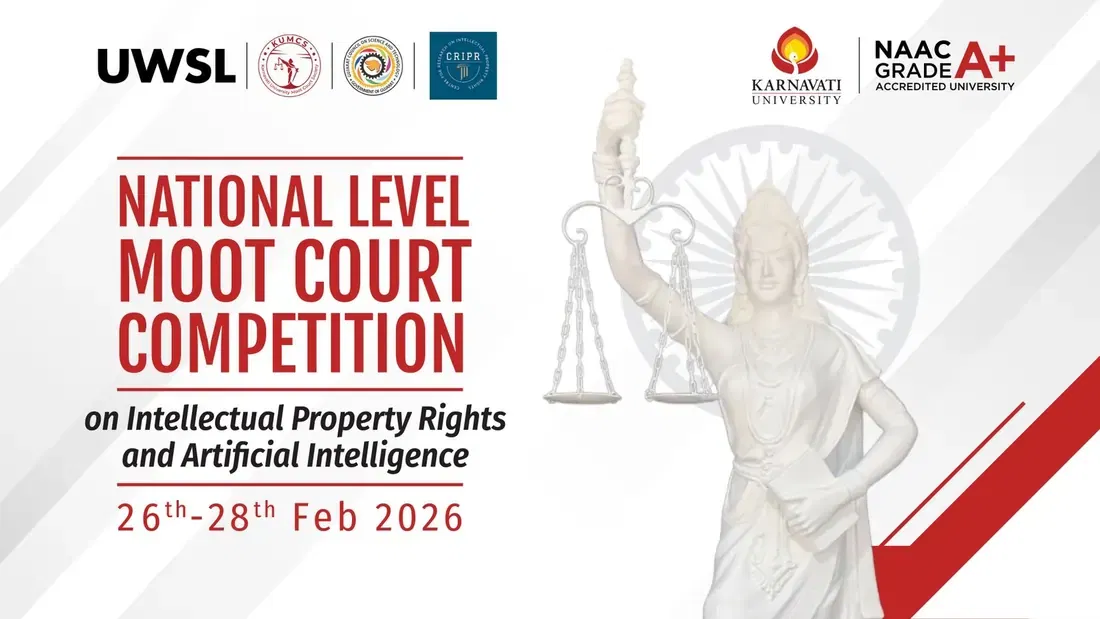Are you confused about what after LLB ? Get deeper insights on the courses after LLB along with top career options that can be pursued after LLB.
In a fast-moving world, there are plenty of opportunities for students to explore as they stand at the crossroads of their career decisions. Through multiple popular and conventional career paths, studying law has always been a strong contender for students. This course has great advantages for applicants and remains a widely lucrative field.
LLB or a Bachelors in Law is a graduate degree that holds much value in all spheres of business and the world beyond it. With the rising need for lawyers in our legal system, in the field of humanities, and the requirement of legal counsel in the corporate sector, this field shows no signs of slowing down anytime soon.
Let’s get down and understand some of the top courses after LLB that increase graduates' value and some of the top career options after LLB.
Also Read on LLB Admission
Career Opportunities After LLB
After completing their graduation in LLB, students are faced with the challenge of understanding the best course for their career. Whether they want to pursue higher education in any of the above-mentioned fields or they want to start building a career in law.
There are many career options after LLB for students to opt for. After completing their graduation in LLB, students are faced with the challenge of understanding the best course for their career.
Whether they want to pursue higher education in any of the above-mentioned fields or they want to start building a career in law. There are many career options after LLB for students to opt for. Some of the top options are listed below:
- Lawyers
- Law Firms
- Legal Advisors
- Legal Executives
- Legal Journalism
- Judge Advocate General
- Judiciary
- Public Prosecutor
- National and Multinational Companies
- Notaries
- Lecturers
- Civil Services
- Company Secretary
Lawyers
Aspirants for this position are often referred to as advocates. In a courtroom trial, a lawyer usually represents one of the parties/clients. As part of this work, one would need to cross-examine witnesses and then write a list of arguments and evidence about why the court should rule in your client’s favor.
- Lawyers have the opportunity to become judges after gaining significant experience in the court.
- On average, lawyers can expect their salaries to reach INR 5.2 LPA and with an increase in their seniority, this can increase exponentially.
Law Firms
Firms, such as law firms, are owned and operated by lawyers and non-lawyers who represent their clients. A person or a company hires a law firm to prosecute their case in court through an approach to the firm. A lawyer employed by the firm represents the firm in court.
- Nevertheless, you cannot always expect to argue from the outset in law firms. For most law firms, you will be required to conduct research, write documents and prepare submissions for cases argued by senior and experienced lawyers either working at the firm or hired to represent the firm.
- Salaries are on average INR 5.89 LPA.
Also, Check: Steps to Become a Judge
Legal Advisor
Legal advisors primarily research relevant laws in a given situation, then go through prior judgments in cases similar to the one their client is currently facing, and then assist them in devising a strategy to protect themselves.
- Legal advisors can expect to earn around INR 3. 86 LPA at the beginning of their careers.
Legal Executives
People who want to work in this field usually provide legal advice to their employers. They also assist their firm in legal proceedings. They also handle administrative tasks as well as in-house legal issues like reviewing deeds, issuing writs, gathering details for affidavits, and drafting legal documents.
- They can find employment in most private enterprises or in major corporations.
- The starting salary for legal executives is INR 4 LPA.
Legal Journalism
Nowadays, people are generally interested in staying current with world events, whether they are related to sports, legal, religious, political, etc. It is the responsibility of media and technology to ensure that this information is shared with the public.
- Legal journalism focuses exclusively on legal issues throughout the world. You do not need any specific qualifications to become a legal journalist.
- However, if a company wants to hire you, you need a Law degree. Also, as the only specialist in the field, a law graduate would have the upper hand in the industry.
Judge Advocate General
There are still opportunities if you are interested in defense but decided to study law instead. The position of Judge Advocate General in the Indian Army is held by an Army major who is in charge of all military law and judicial processes.
- Judge Advocate Generals have as their primary responsibility assisting the Presiding Officer of Court-Materials in interpreting and applying military statutes, such as the Army Act, Indian Defence Act, etc.
- To qualify for registration with the Bar Council of India or any of the State Bar Councils, the candidate should be between 21 and 27 years of age, have a minimum of 55% aggregate marks in graduation.
Also Check: Criminal Law Courses
Judiciary
Upon graduation, you can join the judicial service as a Civil Judge/Judicial Magistrate. After obtaining the degree, students can take one or more of the Judicial Services Examinations offered by every state individually.
- In addition to appearing for several examinations, the posting is made by the state that conducts those examinations. Judging offers a stable and comfortable job, an opportunity to serve the country, and handsome pay with many benefits.
Public Prosecutor
The public prosecutor career is the best choice if you have a passion for criminal law and are dedicated to bringing criminals to justice. Attorneys who represent the state in criminal matters are Public Prosecutors.
- A good understanding of the criminal procedure, including evidence law, is all you need for this career.
- Public prosecutors pay monthly as part of their determined salaries, not on a case-by-case basis. The minimum age for becoming a public prosecutor is 35 to 45 years old, and the minimum experience is 7 years as a practicing attorney.
- The average salary is INR 6.13 LPA.
National and Multinational Companies
Legal departments and wings exist in all companies to handle the nuances of day-to-day business transactions, the legality of agreements made by the company and advise the company on whether a certain step should be taken.
- Search for vacancies and apply for the interview if you wish to work in the legal department. In a case where one earns a good income and is capable of getting into a good company, the initial payment can be comparable to what one will earn after five years in litigation.
Notaries
The central government appoints notaries for the entire country or a particular region. Notaries are often appointed by state governments to work for the entire state or a small section of it.
- Anyone who has practiced law (as a lawyer) for at least ten years is qualified to apply for a position as a notary. Notaries earn INR 3.30LPA along with plenty of benefits of being a government official.
Lecturers
In a college or university, a lecturer will create and deliver lessons and lectures to cover the law course syllabus. These lawyers earn between 3-7 LPA depending on their experience and skillsets. Lawyers in this field must have a specialization in any one field.
- They must either have a Ph.D. in their specialization or have completed the required eligibility criteria in order to be employed.
Civil Services
Civil Service exams are highly competitive and focus on applying for roles such as IAS, IPS, IFS, etc. After joining civil services candidates are likely to become the policymakers for the country, which is where their knowledge of the law would be greatly beneficial.
- In various levels of the governance of the country, civil servants are employed for the care and concern of the districts, states, etc.
- At senior management levels, civil servants receive lucrative salaries and added benefits of being government employees.
Company Secretary
Market environment, entrepreneurship, management, communication, ethics, and accounting are all covered in the foundation course. Business law, commercial law, tax law, common law, securities law, and accounts & audit procedure are all included in the CS executive curriculum.
- Secretarial skills, as well as financial and treasury management, are taught to candidates.
- A CS is in charge of completing tax returns, maintaining documents, advising the board of directors, and ensuring that the corporation follows all legal and regulatory regulations.
- Students must gain additional certification from ICSI before becoming a Company Secretary.
Also Check: Cyber Law Courses
Courses After LLB
After completing a degree in LLB, students are presented with a choice again. They can either choose to pursue higher education and specialize in certain areas or pursue job opportunities and advance their careers.
Higher education provides aspirants more opportunities to understand the subject and scope of their specialization. Taking up a job allows students to gain practical experience and learn by observation and action. Both options are presented below for students to make informed decisions.
Some of the top courses that can be pursued after LLB are listed below:
- LLM
- MA in Human Rights
- M.Phil Law
They can also opt for diploma courses in:
- Diploma in Taxation Law
- Diploma in International Law
- Diploma in Labour Laws and Industrial Relations
- Diploma in Women’s Rights
- Diploma in Intellectual Property Rights
- Diploma in Cyber Laws
LLM
LLM is a two-year specialization course after LLB. Most students prefer to choose this course in their higher education. This helps students to further their interest and knowledge in the field of law.
- Students gain deeper insight into their chosen specializations such as Intellectual Property Rights, Corporate Law, etc, and gain an intensive understanding of their domains of knowledge by rigorous research.
- Practicing lawyers can become highly skilled in their specialization and can choose a niche in which they prefer to work in.
Read More on LLM
MA in Human Rights
Students of this course must be passionate about human rights issues and must have the drive to deliver justice to the marginalized and the needy.
- The people practicing law in this domain have the responsibility to ensure human rights are not compromised in their fields of work, as activists, policymakers, or as a part of academia.
- It is a two-year specialization course, after which students can work in organizations that emphasize human rights violations and help victims in unfortunate circumstances.
M.Phil Law
MPhil Law is a two-year postgraduate course in India that focuses on the administration and procedures of law and order. It's more of a research-based law and legal procedure management course.
- The course is designed to give students a comprehensive understanding of the law, administration, human rights, and various judicial issues.
- Candidates who want to take this course must have scored 50% in their LLM degree course.
MBA in Business Law
MBA Business Law is a two-year postgraduate management degree. It is founded on concepts of commercial law that extend to a business, corporation, or industry. The MBA Business Law program's key goal is to familiarise students with different aspects of civil law. It is a career-oriented course with many lucrative prospects in both the public and private sectors.
Diploma in Taxation Law
A diploma in taxation law is a one-year course that combines the knowledge of finance and legal aspects. This course is designed for people who want to become experts in Direct and Indirect Taxation, as well as laws and procedures.
- Since taxation is critical to every country's growth and development, the course includes all of the necessary components for students to gain a thorough understanding of the system.
Also Read: How to Become a Lawyer?
Diploma in International Law
A diploma in International law caters to students who seek to build a career in international politics and are looking to provide legal support to people caught up in international disputes.
- Alternatively, diplomas in International Law also help students to pursue careers as legal counsel for some multinational companies.
Diploma in Labour Laws and Industrial Relations
The Diploma in Labor Law and Industrial Relations is a diploma-level course that takes one year to complete. Students who want to specialize in labor law should concentrate on legal contracts that include the employee and the employer.
- A law student's job is to represent employers, employees, union labor, the government in labor, and legal cases involving jobs.
Diploma in Women’s Rights
The Diploma's goal is to raise awareness of gender issues among development workers and to provide the required training to allow learners to act as experts on women's issues. It also gives learners the skills they need to be trainers and group organizers when it comes to gender issues.
- It is designed to meet the needs of workers who work in organizations that are involved in gender planning and training. It is a one-year course that can be taken in online as well as offline modes.
Diploma in Intellectual Property Rights
PGD in Intellectual Property Rights is a two-year post-graduate diploma program in Intellectual Property Rights that aims to teach students about various copyrights, trademarks, patents, trade secrets, and other intellectual property rights.
- The course covers topics such as digital media content ownership and licensing, internet broadcasting, technology, and applications, as well as pharmaceutical patenting and commercialization.
Diploma in Cyber Laws
Cyber Law is a field of study that investigates and resolves legal problems relating to the Internet. Fraud, theft, forgery, and slander on the internet are all issues that aspirants in this sector must deal with.
- Lawyers in the field of Cyber Law deal with a wide range of issues, including freedom of speech, internet access, internet use, and online privacy. A diploma in Cyber Law takes a year to complete and opens up many career opportunities for lawyers.
Also Check: MBA After Law - Is it worth it?










